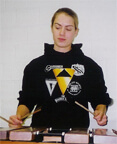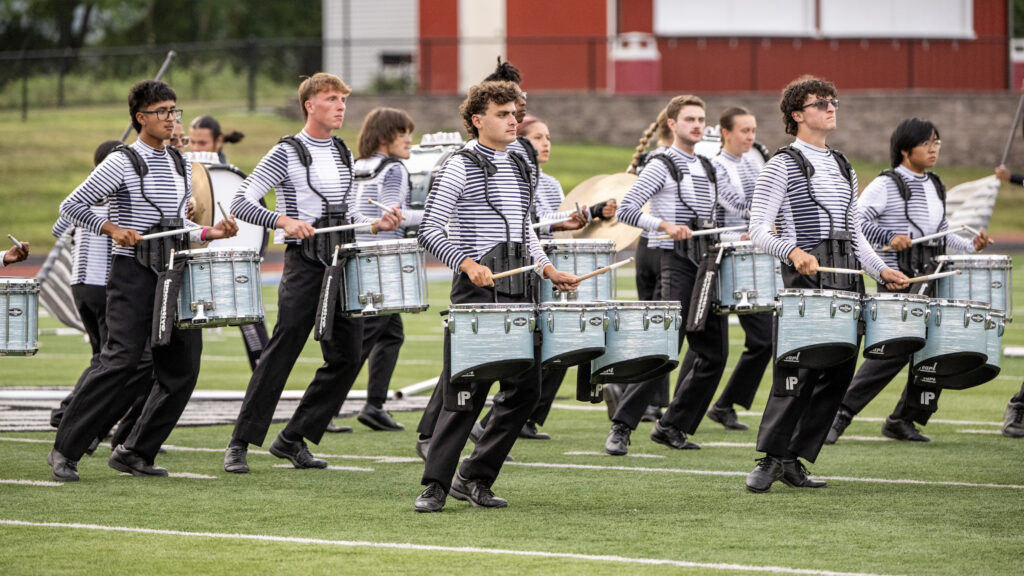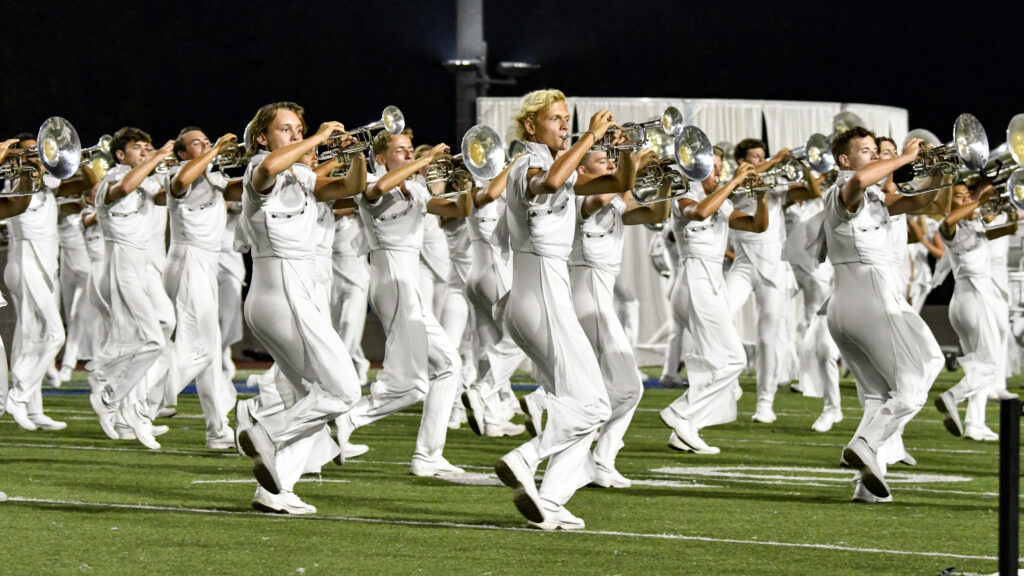
Drum corps teaches you many wonderful life skills: determination, perseverance, time management, etc. Teamwork is another of those oft-cited examples of these life lessons. But I think to call the universality of partnership that goes into the process of becoming part of a drum corps “teamwork” is to sell the lesson short. You see, a drum corps is NOT 135 different people; it is, rather, a single entity. One of the most difficult parts of becoming part of a corps is giving up your individuality to integrate into that entity. This doesn’t mean that you have to give up your own personality, like some sort of marching robot. What it does mean, however, is that you have to realize that every single action you take affects literally hundreds of other people. If you decide to go eat before you put your horn away, for example, you might force the pit to wait on you before they can get the truck loaded, which may then delay departure from a rehearsal or show site, resulting in less floor time for the entire corps. Amazing how the actions of one individual can cascade into an avalanche of detrimental events for everyone, isn’t it? The same principle goes for even seemingly less consequential actions, like not dressing a form, or taking an extra minute to come back from break. In a drill form, if one person at the top of a line is even a half a step off their dot, the people at the bottom of the line can easily be three or four steps — the equivalent of half a yard line — away from where they are supposed to be. So the entire drill form looks wrong, and most likely, the three or four sets after it will also be affected. Half a step can blow half the piece. Even the little things, as small as a minute, can add up. In the course of a day, easily 10 minutes can be lost just from staff or drum major having to wait on a slow member to get set. By the end of the week, 10 minutes a day has become an hour; by the end of the season, an hour a week equals an extra rehearsal day. I’ve never seen a drum corps staff that wouldn’t love an extra 20 hours of rehearsal toward the end of the season. Amazingly, it’s there for the taking, but only if everyone takes advantage. The most common explanation (or excuse) for such behavior is “I’m only one person — I can’t make that big of a difference either way.” But when each person thinks that way, suddenly one person has become 135 — and that makes a very big difference! Chaos reigns, nothing gets done, and suddenly the corps can’t get down the road. The machine only runs if everyone does what they are supposed to do. The notion that being ultimately responsible to hundreds of other people is a difficult one to accept, especially in the all-for-yourself tendencies of Amercian society today. It’s difficult sometimes to reset your priorities so that everyone else actually comes first and your own interests second — but it’s also very rewarding, because once you stop resisting, being part of this greater entity, the corps, you realize you are a part of something larger than yourself, and all of you together create something far more special than any one person could ever hope to create on their own. So being part of a corps isn’t just learning teamwork or even consideration for others; it’s realizing that while you may just be another cog in the machine, it takes everyone to make that machine go. The least person can force the machine to grind to a halt, or can keep it clicking smoothly down the tracks. It’s quite amazing, really, the power an individual has; but it’s far more amazing when that power is give over to the greater good. It’s what makes a drum corps more than a group of people wandering around a field. It’s what makes the machine run. Send Emily feedback and ideas at [email protected]. Emily Tannert is currently living in Knoxville, Tenn., taking a year off from school before she returns to Northwestern University in Evanston, Ill., for a master’s degree. She was the 2002 drum major for the Pioneer, and will play in the 2003 Glassmen pit. She will age out in 2003.





